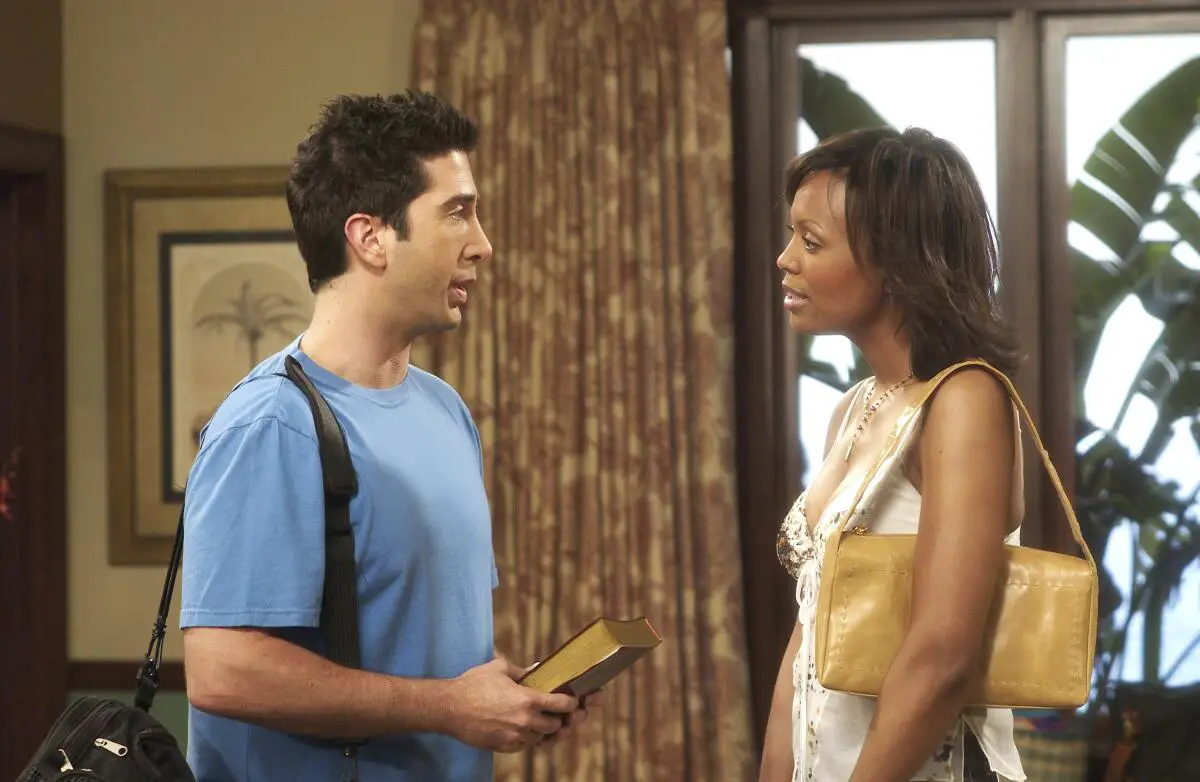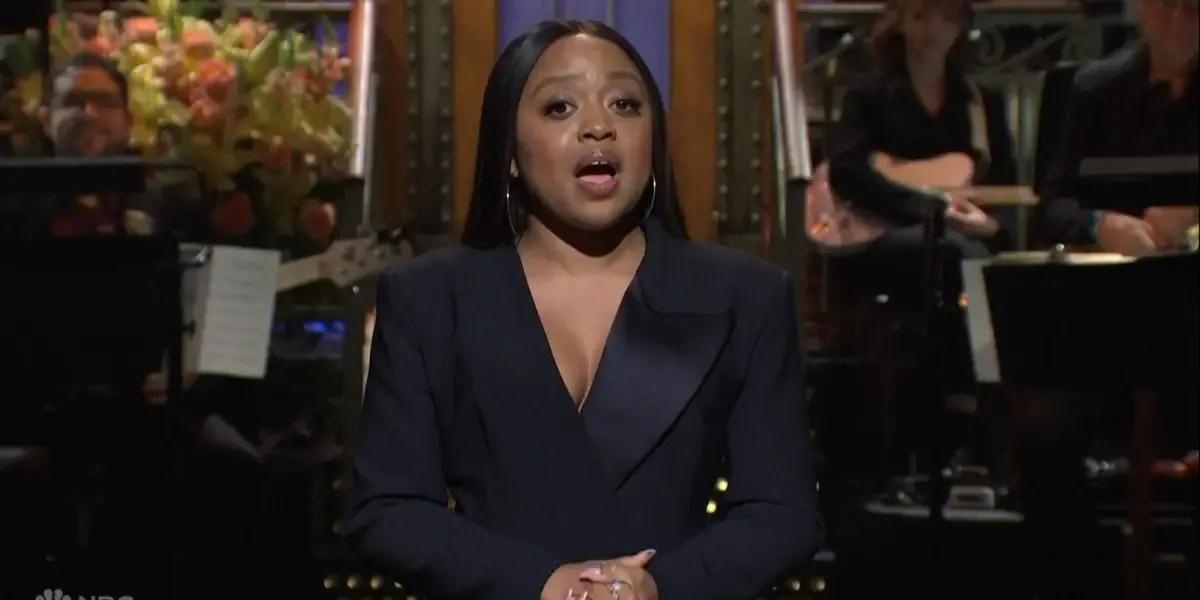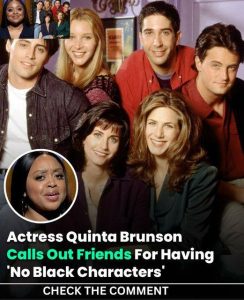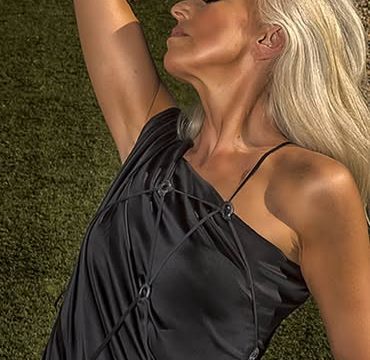Quinta Brunson, the brilliant mind behind Abbott Elementary, recently spoke out about the iconic TV show Friends, pointing out its glaring lack of Black characters. Despite being a beloved sitcom that has entertained millions, Friends has faced criticism over the years for its predominantly white cast. Brunson’s comments have reignited discussions about representation in media.
Friends remains one of the most beloved sitcoms of all time, captivating audiences even two decades after it ended. The show follows the everyday lives of six adults living in Manhattan, filled with humor, romantic entanglements, and unforgettable moments. Its fan base continues to grow every year as new viewers discover its charm.
The show’s witty dialogue, memorable characters, and iconic catchphrases have cemented its place in pop culture. However, beneath its widespread appeal lies a significant issue: the lack of diversity among its main characters.
One of the main points of contention is Friends‘ predominantly white cast, with non-white actors often limited to minor roles. This lack of diversity has not gone unnoticed and has sparked numerous discussions over the years.
Aisha Tyler portrayed Charlie Wheeler, a paleontologist who dated both Joey and Ross in the show’s ninth season. Despite her significant role, Tyler has mentioned that fans often refer to her as the ‘Black girl from Friends.’

Speaking to Entertainment Weekly, Tyler shared: “It was a massive hit worldwide. Even today, people come up to me and say ‘Charlie’ or ‘Black girl from Friends.’” Tyler remains the only Black actor to have had a recurring role on the series.
Tyler’s role, while important, highlights the show’s limited representation of Black characters. Her experience underscores the broader issue of inclusivity in mainstream media.
The Friends 2021 reunion special also faced backlash for not including any Black cast members. Notable omissions included Phil Lewis, who played Chandler’s boss, and Gabrielle Union, who also portrayed a love interest for both Ross and Joey.
Marta Kauffman, one of the show’s co-creators, addressed this criticism in an interview with the Los Angeles Times: “I’ve learned a lot over the past 20 years. Owning up to these mistakes is difficult and painful. I’m ashamed that I didn’t know better back then.”
In response to her growing awareness of systemic racism, Kauffman donated $4 million to fund an endowed chair for the African and African American Studies Department at her alma mater. This gesture, while significant, also highlights the need for proactive steps towards inclusivity.
Lisa Kudrow, who played Phoebe on Friends, has also stood by Kauffman and co-creator David Crane. Speaking to The Daily Beast, she remarked: “The show was created by two people who went to Brandeis University and drew inspiration from their post-college lives.”
Kudrow’s comments reflect a broader understanding of the cultural context in which Friends was created, but also emphasize the need for ongoing conversations about representation.
Brunson shared her thoughts while discussing her own show, Abbott Elementary. “I had wanted to be on SNL, but the audition process seemed daunting. So I created my own show, made it popular, won some Emmys, and then got invited to host. Much easier!”
She then described Abbott Elementary, saying, “It’s a network sitcom like Friends, but instead of focusing on a group of friends in New York, it’s about a group of teachers in Philadelphia. And unlike Friends, it features Black characters.”
Brunson’s approach highlights the importance of creating spaces that reflect diverse experiences. Her success with Abbott Elementary demonstrates that audiences are eager for stories that include a variety of perspectives.
Television and media should reflect the diversity of the real world. Representation matters because it shapes how viewers understand and relate to different cultures and communities.
Shows with diverse casts provide positive role models for underrepresented groups, fostering a sense of inclusion and belonging.
While Friends remains a beloved show, it also serves as a reminder of the importance of inclusivity. The criticism it has faced should inspire current and future creators to prioritize diverse casting.

By creating content that reflects a wide range of experiences, the media industry can contribute to a more inclusive society. This means not only including diverse characters but also ensuring that their stories are told authentically.
Quinta Brunson’s critique of Friends underscores the ongoing need for diversity and representation in media. As audiences, we should support and celebrate shows that reflect the rich tapestry of human experiences. By doing so, we can ensure that all voices are heard and valued, paving the way for a more inclusive future in entertainment.






